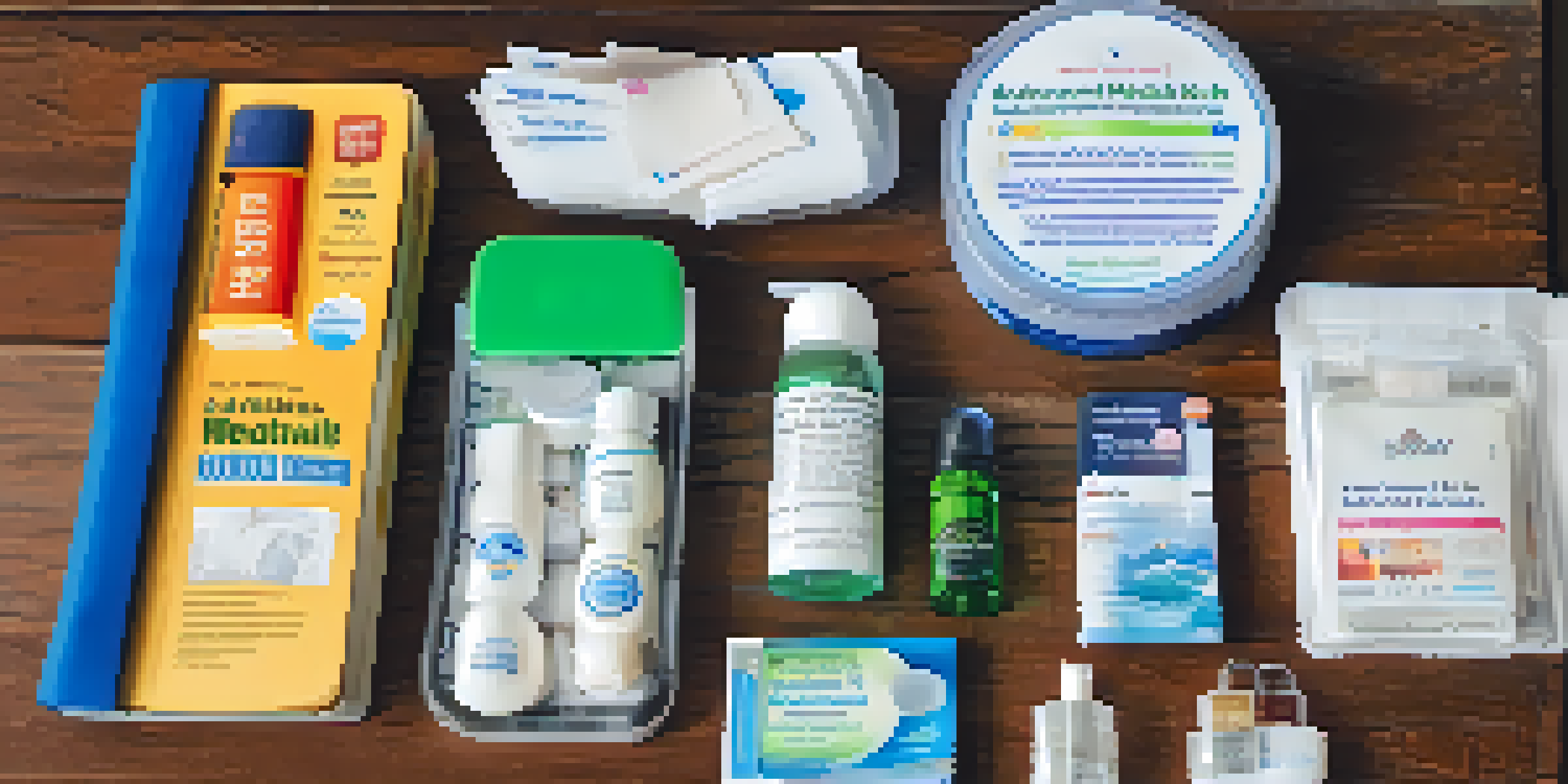How to Avoid Common Travel Illnesses and Stay Healthy

Understanding Common Travel Illnesses: What to Watch For
When you travel, you might encounter various illnesses that can put a damper on your adventure. Common travel-related ailments include gastrointestinal issues, respiratory infections, and even mosquito-borne diseases. Knowing what to look out for can help you take preventive measures before they strike.
Travel is fatal to prejudice, bigotry, and narrow-mindedness, and many of our people need it sorely on these accounts. Broad, wholesome, charitable views of men and things cannot be acquired by vegetating in one little corner of the earth all one's lifetime.
For instance, if you're heading to a tropical destination, be aware of diseases like dengue fever or malaria. In contrast, if you're traveling to areas with poor sanitation, be cautious of food and waterborne illnesses like traveler’s diarrhea. Awareness is your first line of defense.
By familiarizing yourself with these potential health threats, you can better prepare and stay healthy throughout your trip. A little research goes a long way in ensuring that your travel memories are filled with joy rather than discomfort.
The Importance of Vaccinations Before Traveling
Getting vaccinated is one of the most effective ways to shield yourself from travel-related illnesses. Depending on your destination, certain vaccines may be recommended or required to help prevent diseases such as hepatitis A, typhoid, or yellow fever. It’s a small step that can save you from major health issues later on.

Consulting with a healthcare provider well before your trip allows you to receive the necessary vaccinations on time. Many vaccines require multiple doses spread out over weeks or even months, so planning ahead is key. Don’t leave your health to chance just before your departure.
Prevent Illness with Vaccinations
Getting vaccinated is crucial for protecting yourself from various travel-related diseases.
Additionally, keeping a record of your vaccinations can be beneficial, especially when traveling to countries where proof of immunization is required. Being proactive about your health can ensure a smoother, healthier travel experience.
Packing Essentials: Health Supplies for Travelers
When packing for your trip, don’t forget to include a health kit tailored to your needs. This could encompass essential items like hand sanitizers, first-aid supplies, and any necessary medications you might require during your travels. A well-stocked health kit can be a lifesaver when you're on the go.
The journey of a thousand miles begins with one step.
Consider adding over-the-counter medications for common ailments such as headaches, allergies, or digestive issues. Packing items like insect repellent and sunscreen can further protect you from the elements and common travel-related problems. After all, prevention is better than cure.
Having these supplies handy means you won’t have to scramble to find a pharmacy in a foreign place. Your travel health kit can help you manage minor issues efficiently, allowing you to focus on enjoying your trip.
Staying Hydrated: The Key to Good Health While Traveling
Staying hydrated is crucial, especially when you're traveling. Dehydration can lead to fatigue, headaches, and even more severe health issues. Drinking plenty of water while exploring new places will keep you energized and ready for whatever adventures come your way.
Be mindful of the water sources you use while traveling. In some countries, tap water might not be safe to drink, so opting for bottled water or using a reliable water purification system is wise. Remember, staying hydrated also means replenishing electrolytes, especially in hot climates or during strenuous activities.
Pack a Health Essentials Kit
A well-stocked health kit can help you manage minor ailments and stay prepared while traveling.
Making hydration a priority helps your body function at its best, minimizing the risk of illness. So, keep that water bottle handy and remember to sip regularly as you travel!
Eating Smart: Avoiding Foodborne Illnesses
Food can be one of the highlights of travel, but it can also be a source of illness if you’re not careful. Street food might be tempting, but it’s essential to assess the hygiene of food vendors before indulging. Opt for freshly cooked meals and avoid anything that looks suspicious or has been sitting out for too long.
Additionally, be cautious with raw or undercooked foods, especially if you're in a region known for certain delicacies. It's wise to stick to bottled beverages and avoid ice unless you know it’s made from clean water. Your stomach will thank you later for being discerning.
By making informed food choices, you can indulge your taste buds while reducing the risk of foodborne illnesses. Remember, a little caution can lead to a lot of enjoyment during your culinary explorations.
Practicing Good Hygiene: Simple Steps to Stay Healthy
Good hygiene practices can significantly reduce your risk of falling ill while traveling. Regularly washing your hands with soap and water, especially before meals, is one of the simplest yet most effective ways to prevent the spread of germs. When soap isn’t available, using hand sanitizer with at least 60% alcohol can be a great alternative.
Additionally, be mindful about touching your face, especially your eyes, nose, and mouth. These areas are common entry points for germs, and avoiding unnecessary contact can help keep you healthy. Wearing a mask in crowded places can also add an extra layer of protection.
Stay Hydrated During Your Travels
Drinking plenty of water and being cautious about your sources can prevent dehydration and other health issues.
Incorporating these hygiene habits into your travel routine can make a significant difference in your overall health. Staying vigilant about cleanliness ensures you can enjoy your journey without worrying about unwanted illnesses.
Listening to Your Body: When to Seek Medical Help
While it’s essential to take preventive measures, sometimes illness can still strike. It’s crucial to listen to your body and recognize when something isn’t right. Symptoms like persistent fever, severe headaches, or gastrointestinal distress should not be ignored while you’re traveling.
If you start feeling unwell, seek medical advice as soon as possible. Many tourist areas have clinics or hospitals equipped to handle traveler health issues. Having travel insurance that covers medical expenses can also provide peace of mind as you navigate unfamiliar healthcare systems.

Taking prompt action when you feel unwell ensures you receive the necessary care without delay. Your health should always come first, allowing you to get back to exploring and enjoying your travels.